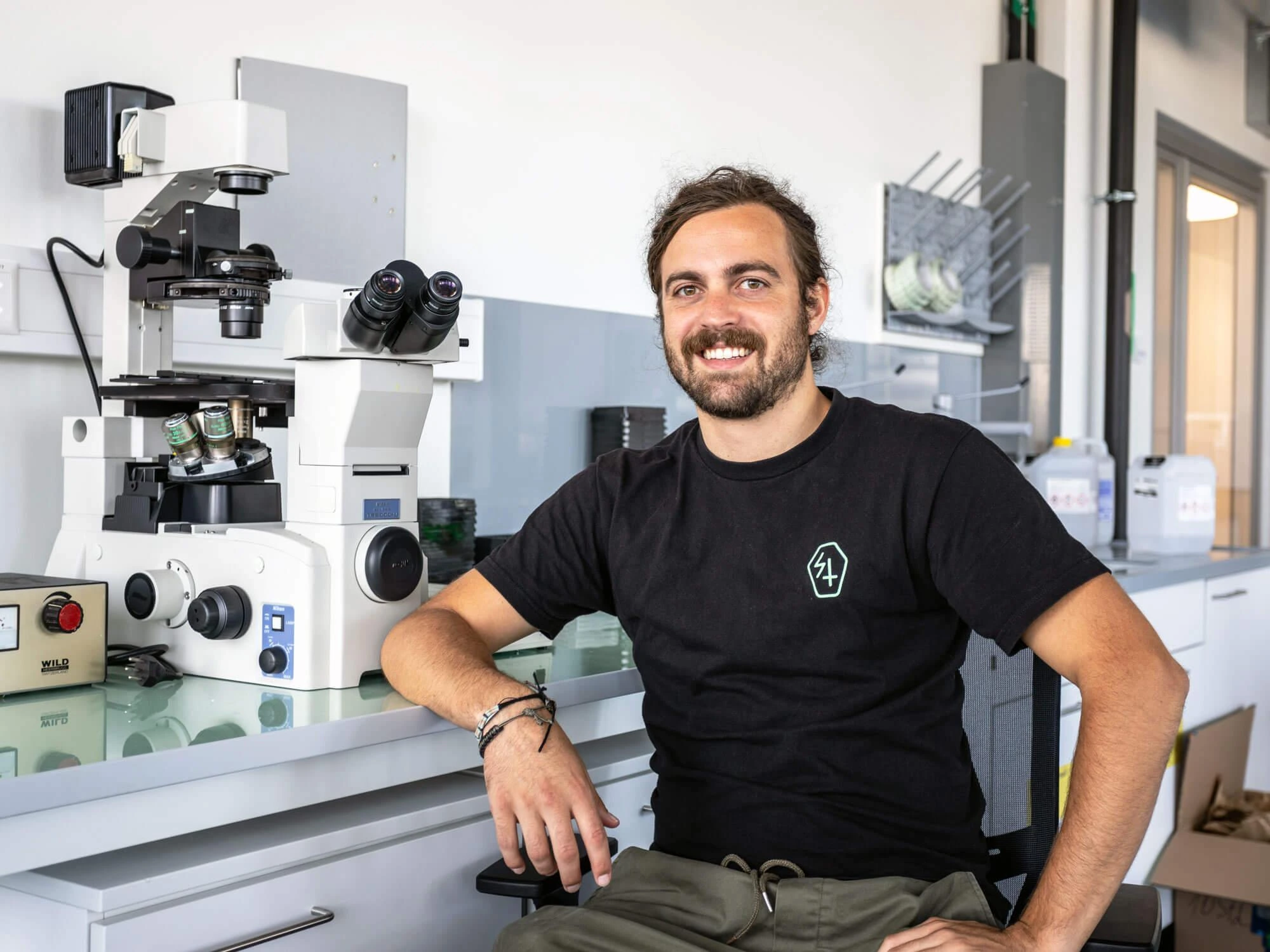Rejuveron encourages people not only to push scientific boundaries, but also personal boundaries. When Vasco Campos completed his PhD on stimulating endogenous stem cells, little did he expect to be working in the growing field of longevity research.
“I’d never heard of any longevity companies in Switzerland before I met Matthias Steger, Rejuveron’s CEO”, said Vasco, who is now Rejuveron Vascular Therapeutics’ Head of Discovery Biology.
“I was working on a project involving small molecule screening on endogenous stem cells as part of my PhD at EPFL in Lausanne. That’s when I had the chance to collaborate with Matthias, who invited me to join his new venture. Now I get to work with leading experts in the aging field, such as Lee Rubin at Harvard University, at the cutting edge of discovery in this area”.
Through this relationship, Rejuveron Vascular Therapeutics was founded. This was the early beginnings of Rejuveron, which then only had six people. Since then, with Rejuveron expanding to over 30 people working across several subsidiaries, Vasco quickly gained experience in setting up state-of-the-art laboratory facilities for the company at its base on Zürich’s Bio-Technopark. He’d already had experience in setting up a lab at university, but this time it involved the basics such as installation of waste disposal, right through to the acquisition of highly-specialised automated drug discovery equipment.
Being part of Rejuveron gave me first-hand experience of creating a biotech venture
“There was a lot to learn from building a company, from selecting lab equipment to figuring out where valves and pipes should go in our new facilities. At the same time, I was continuing to research the vascular mechanisms of the brain, which gave me an alternative perspective on valves and pipes.”
“Being part of Rejuveron gave me first-hand experience of creating a biotech venture, learning how to assess projects to potentially incorporate into our portfolio. ”
Vasco has found that the most liberating thing about working at Rejuveron is that he has the freedom and resources to test new hypotheses. He can see his research quickly becoming a reality.
He has also experienced the unexpected advantages of working in the heart of Zürich’s research community: “During the pandemic, it’s been difficult to obtain lab essentials such as pipette tips. But I managed to solve this by taking advantage of my own scientific network in the area and building good relationships with our neighbours on the Bio-Technopark here in Schlieren.”
“Above all, it’s rewarding to be part of something with tangible results: making therapies happen for patients suffering from age-related conditions.”
